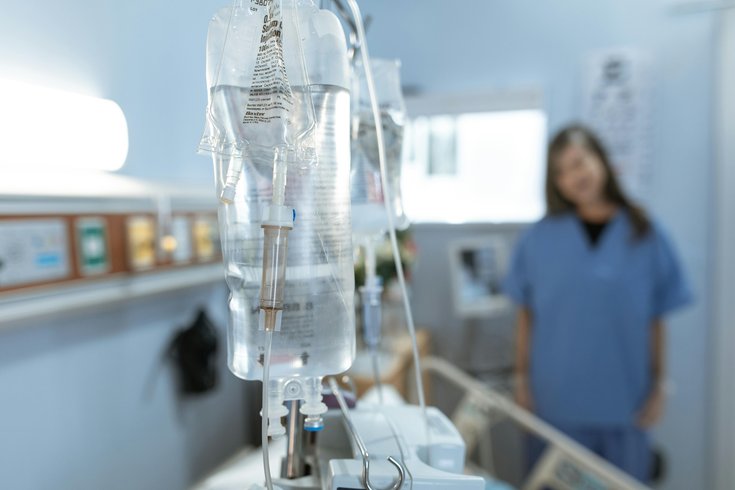
October 18, 2024
 RDNE Stock project/Pexels
RDNE Stock project/Pexels
Philadelphia-area health systems are closely monitoring IV fluid supplies after Hurricane Helene damaged a plant that manufactures 60% of the country's IV products, sparking a national shortage.
Philadelphia-area health systems are carefully gauging their stocks of intravenous fluids in the wake of the hurricane damage to the North Carolina plant that produces 60% of the country's supply.
Dr. Jonathan Stallkamp, chief medical officer at Main Line Health, said the hospital system has been "aggressively" pursuing a "strategy of conservation." Main Line Health's supply of IV fluid is up to about 60% after dipping to about 40% immediately after Hurricane Helene hit Baxter International's North Cove site late last month. The site that produced 1.5 million bags used daily in the United States.
The Biden Administration has invoked the Defense Production Act to give Baxter priority status to secure a contractor to rebuild. Baxter has said it is ramping up production throughout its global manufacturing network and hopes to be able to get back up to 90% to 100% production of certain IV fluids by the end of the year.
Federal agencies also are working with other domestic and international manufacturers of IV fluid and dialysis products to increase supply to the United States. Additionally, the Food and Drug Administration has offered guidelines to make it easier for hospitals to make their own IV fluids.
Still, the FDA added three new IV fluids to its shortage list late last week, and hospitals around the country have postponed some elective surgeries, reserved IV fluids for patients most in need and used commercial electrolyte drinks to keep other people hydrated. Like Main Line Health, other Philadelphia-area hospitals said they were working to conserve supplies.
Main Line Health had to postpone a few elective surgeries, Stallkamp said. Its conservation efforts also have included using oral hydration with electrolyte drinks, such as Gatorade, for some patients, and waiting to connect patients to IVs until close to procedure time. This has allowed the hospital system to "continue to provide high quality, safe patient care," Stallkamp said. "We're doing our best to make sure that we have those fluids for you regularly, and working with Baxter and with the federal government to make sure that that continues."
Penn Medicine is "working to carefully manage our inventory of impacted supplies and develop conservation approaches such as using oral medications when possible," a spokesperson said in a statement. "As a large health system with many facilities, we are working across multiple locations and with multiple vendors in order to ensure patients receive the best possible care in every setting."
Temple Health said in a statement that the majority of its campuses do not use IV fluid products from Baxter, instead getting them from a different manufacturer, B. Braun. Braun has put Temple Health and other hospitals on allocation, following federal guidelines imposed to limit the amount a customer can buy at a given time to prevent hoarding during the shortage.
Chestnut Hill Hospital is the only Temple Health campus that is a Baxter customer.
"We are closely monitoring the inventory of IV fluids for that campus and meeting three times weekly to identify possible supply disruption risks," a Temple Health spokesperson said in a statement. "At this point, we do not foresee IV supply chain impacts during October and we are working with all of our vendors to secure additional IV fluid supplies to minimize any impact in the longer term."
Similarly, Jefferson Health is conducting frequent assessments of its overall inventory and evaluating clinical needs, a spokesperson said in an email.
"To ensure continued, clinically appropriate care throughout this projected shortage, we are implementing measures to maximize efficiency and minimize waste and actively seeking alternative sources and suppliers for impacted solutions," the Jefferson spokesperson said.
Cooper University Health Care in South Jersey did not immediately respond to a request for comment.